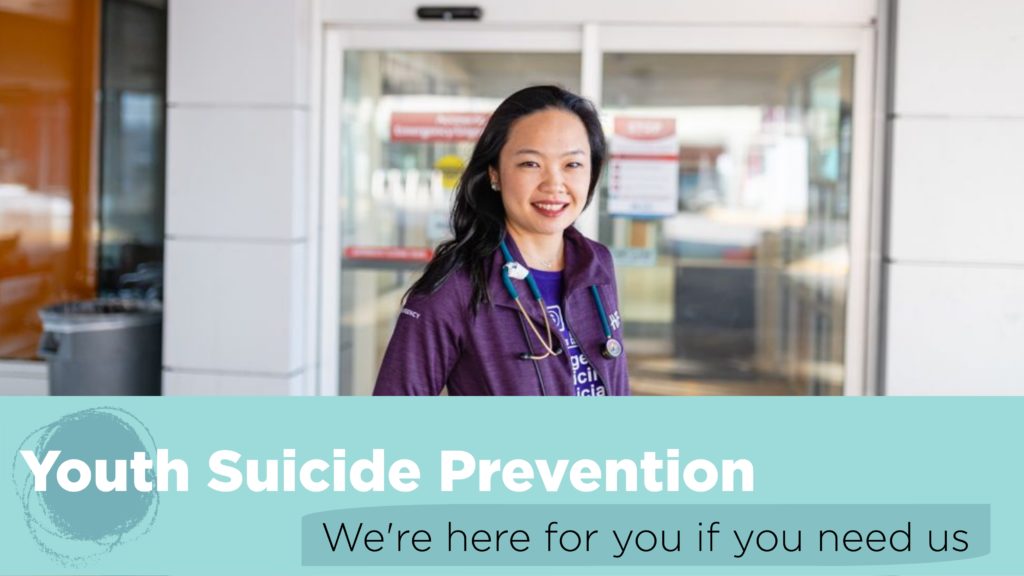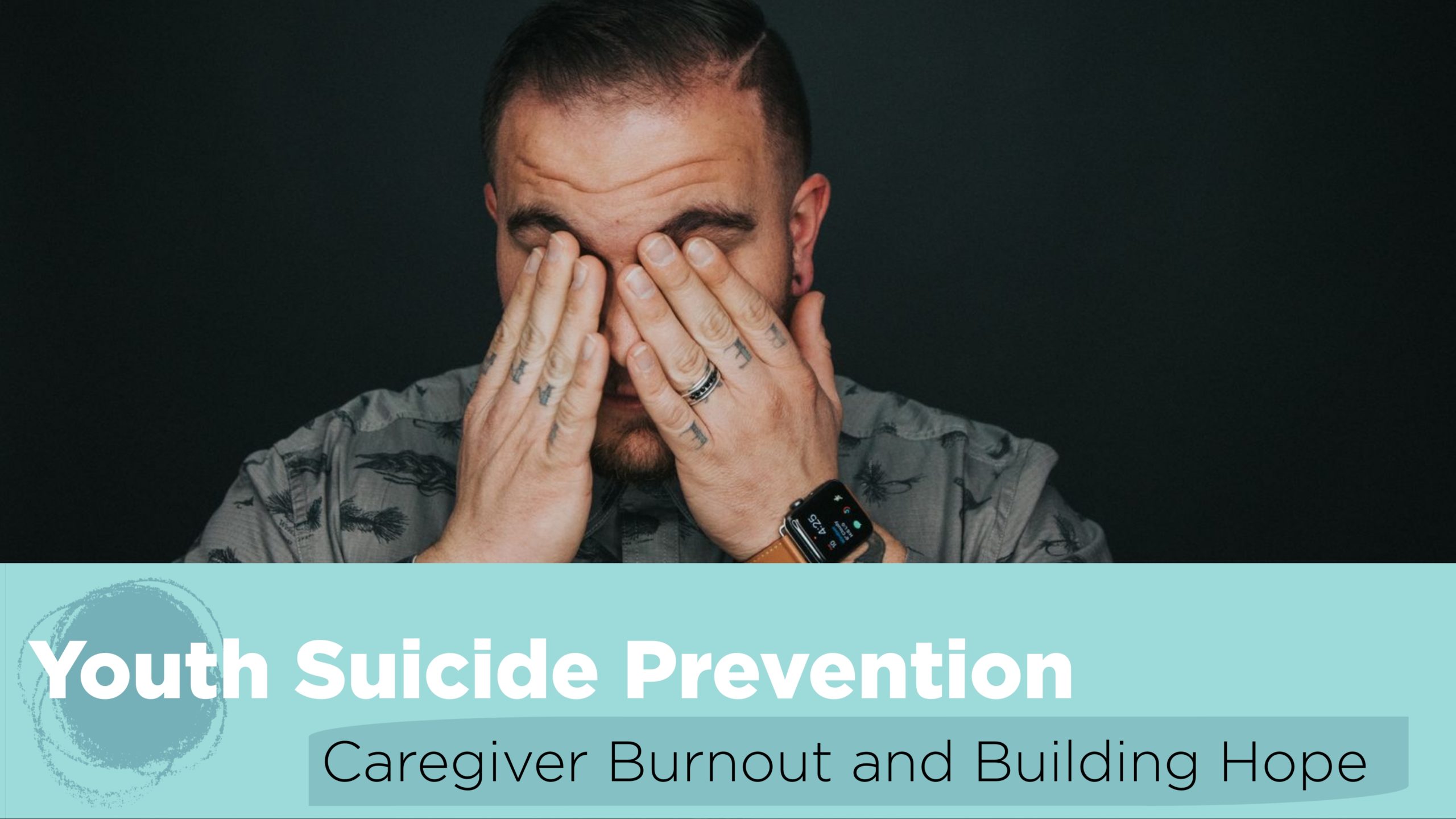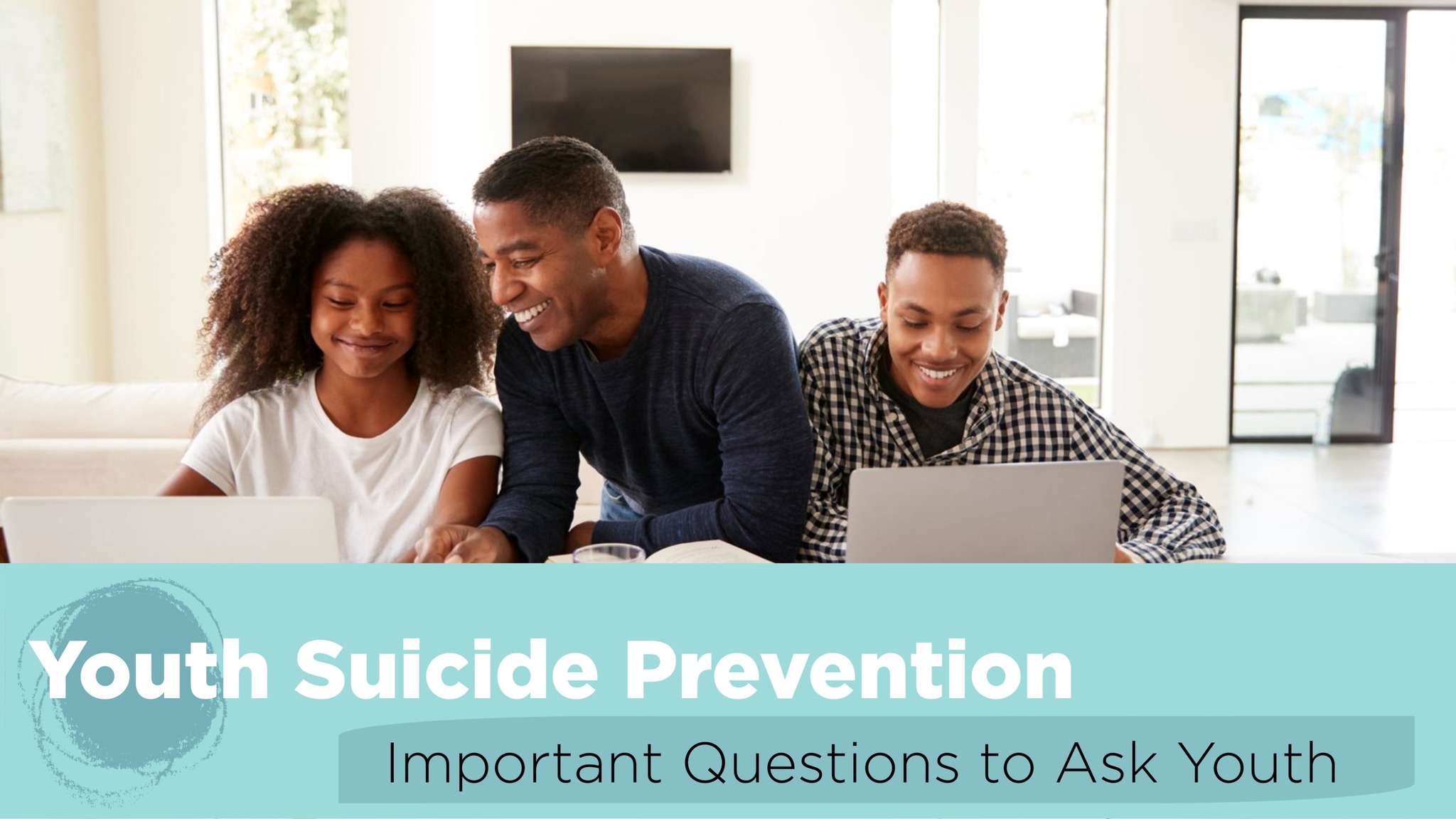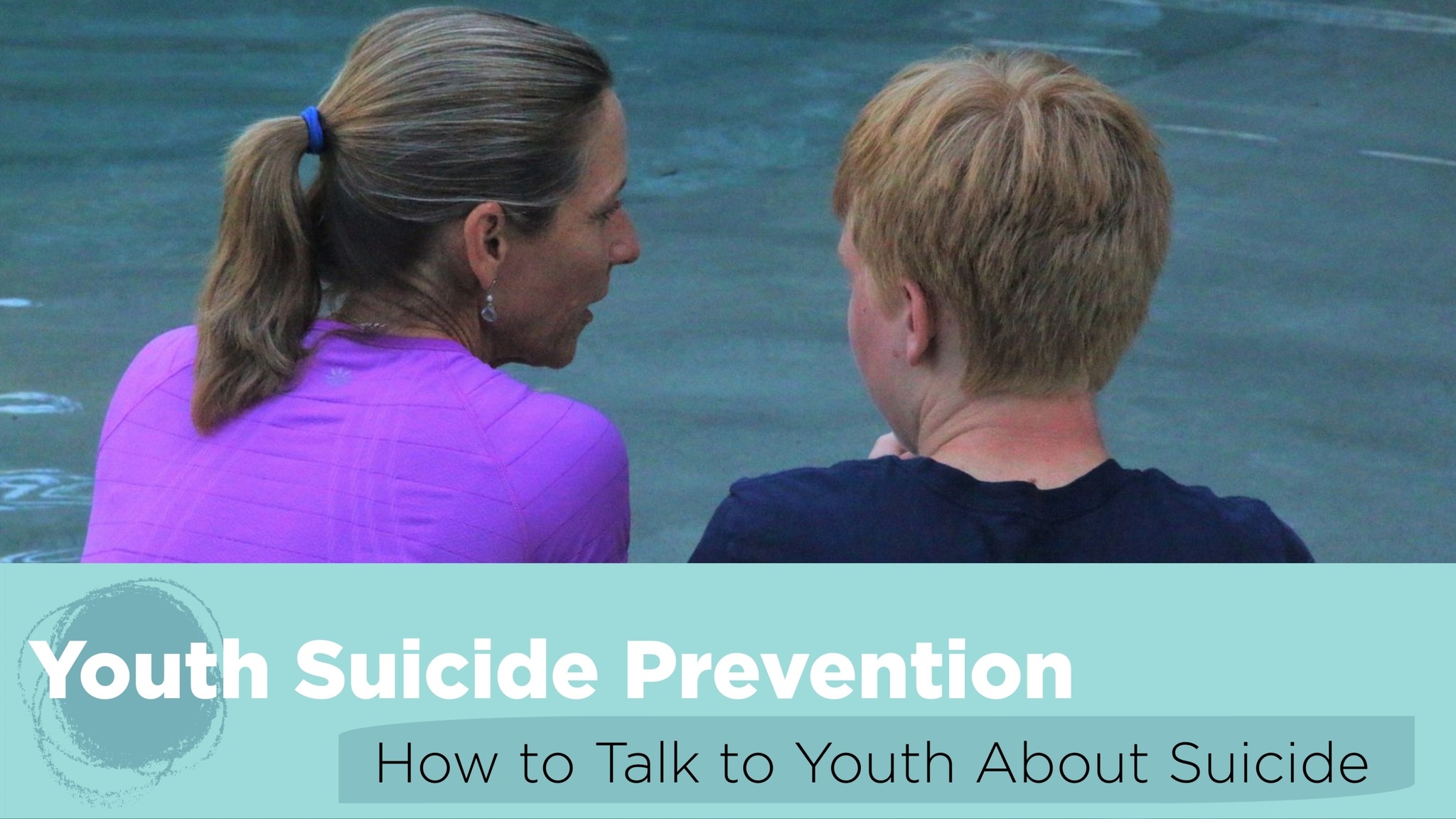
Youth suicide prevention series: We’re here for you
September 10 is Suicide Prevention Day.
Watch this video to find out what to expect if you come to the emergency department at McMaster Children’s Hospital for a mental health crisis.
By Jennifer McTaggart, Clinical Psychologist, McMaster Children’s Hospital Child & Youth Mental Health Program
Some people worry about coming to the emergency department. If you’re under the age of 18 or the parent of a young person under the age of 18, you hope you never have to go to the emergency department. But if you’re struggling with a mental health crisis, we’re here if you need us.
What to expect
When you arrive in the emergency department at McMaster Children’s Hospital (MCH), you will first check in at the registration desk. Then you’ll be triaged by an emergency department nurse and determined to be medically healthy.
You will see a physician and maybe also a social worker. The social worker and/or emergency doctor will be asking you questions about how you are feeling, what you’re thinking, and if you’re feeling safe at the time of our assessment. We’ll also ask your caregivers some questions about your health.
Crises can come and go
We know that crises come and go, even thoughts about ending your life. Sometimes just being in hospital can make things feel better. That doesn’t mean that your visit to the emergency department was a waste of time. That’s just something that happens sometimes and that’s okay.
If you are safe enough to leave the hospital, you may be given some local resources or complete a safety plan should those thoughts or feelings come back. If you need a more specialized assessment, you may be referred to the Mental Health Assessment Unit (MAU) in the emergency department.
Mental Health Assessment Unit
MCH recognizes that children, youth, and families may experience mental health crises which require prompt attention. We are committed to ensuring all children and families have access to emergency mental health care, when they need it.
Working alongside the emergency department, the mental health program has a specialized team of clinicians who provide emergency mental health care to youth 17 years of age and younger in the Mental Health Assessment Unit (MAU). The MAU is a short-term assessment unit that provides emergency mental health risk assessment, referral to community services and/or recommendations for follow up care.
In the MAU, you will receive an in-depth risk assessment completed by a team of professionals including social workers, nurses and child and youth workers. It’s important to know that this is not a psychiatric assessment. You may or may not see a psychiatrist during your visit, but a psychiatrist will always be involved in your care.
It’s also important to know that your medications will not be changed during your visit to the emergency department. Sometimes, the psychiatrist might make medication recommendations to your family doctor. Your situation will be discussed with the team who will decide what should happen next.
The pros and cons of staying in hospital versus going home will be considered and there’s many things that we think about when we make this decision.
The main reason to stay in hospital would be to keep you safe so we take that decision very seriously. If it is decided that you will stay in hospital, the team will talk to you about what that will look like. Before leaving the MAU, you will create a detailed safety plan with a member of our team. You will also be connected to local resources should that be needed.
You may come back, and that’s okay
Sometimes a visit to the emergency department is a one-time thing, but some people might come back. Every visit is treated as a new assessment, meaning that we will ask you many of the same questions. This is done to make sure that we have all of the information we need to make the best decision about your care at that time.
We know that lasting change happens when youth are in treatment and living their lives, so getting you connected with local resources including therapy is really important to us. Your local contact agency can help connect you to these resources and the numbers are listed below.
We’re here if you need us.
If you or your child is experiencing a mental health crisis, call 911 or go to the nearest emergency department. You may also call a crisis line, listed below. To connect with public mental health services in your area, please contact your family doctor to consider your options. Some options for children up to 18 years old are listed below. In some cases, self-referral is possible.
Community Resources
CANADA-WIDE: Available 24/7
- Kids Help Phoneline 1-800-668-6868 Text and Live Chat options: https://kidshelpphone.ca/
- LGBT Youthline 647-694-4275 Live chat messaging available: https://www.youthline.ca/
- Trans LifeLine (All Ages) 1-877-330-6366
- Canada Suicide Prevention Service (CSPS) 1-833-456-4566
- First Nations and Inuit Hope for Wellness 1-855-242-3310
- Canadian Indian Residential Schools Crisis Line 1-866-925-4419
HAMILTON
- Crisis Line: COAST 905-972-8338; Toll Free: 1-844-972-8338 Answered 24-7
- Connection to public mental health services (0-18 years old): CONTACT Hamilton 905-570-8888 or info@contacthamilton.ca
BRANT/BRANTFORD
- Crisis Line: St. Leonard’s Mental Health Crisis Line 519-759-7188; Toll Free: 1-866-811-7188 Answered 24-7
- Connection to public mental health services (0-18 years old): CONTACT Brant 519-758-8228 or information@contactbrant.net
HALDIMAND NORFOLK REGION
- Crisis Line: Haldimand Norfolk REACH 1-866-327-3224 Answered 24-7
- Connection to public mental health services (0-18 years old): CONTACT Haldimand Norfolk 519-587-2441; Toll Free: 1-800-265-8087 x. 350
NIAGARA
- Crisis Line: Pathstone Crisis Support Line 1-800-263-4944 Answered 24-7
- Connection to public mental health services (0-18 years old): CONTACT Niagara 905-684-3407 or info@contactniagara.org
HALTON
- Crisis Line: ROCK Crisis Line 905-878-9785
- Connection to public mental health services (0-18 years old): Reach Out Centre for Kids (ROCK) 289-266-0036



